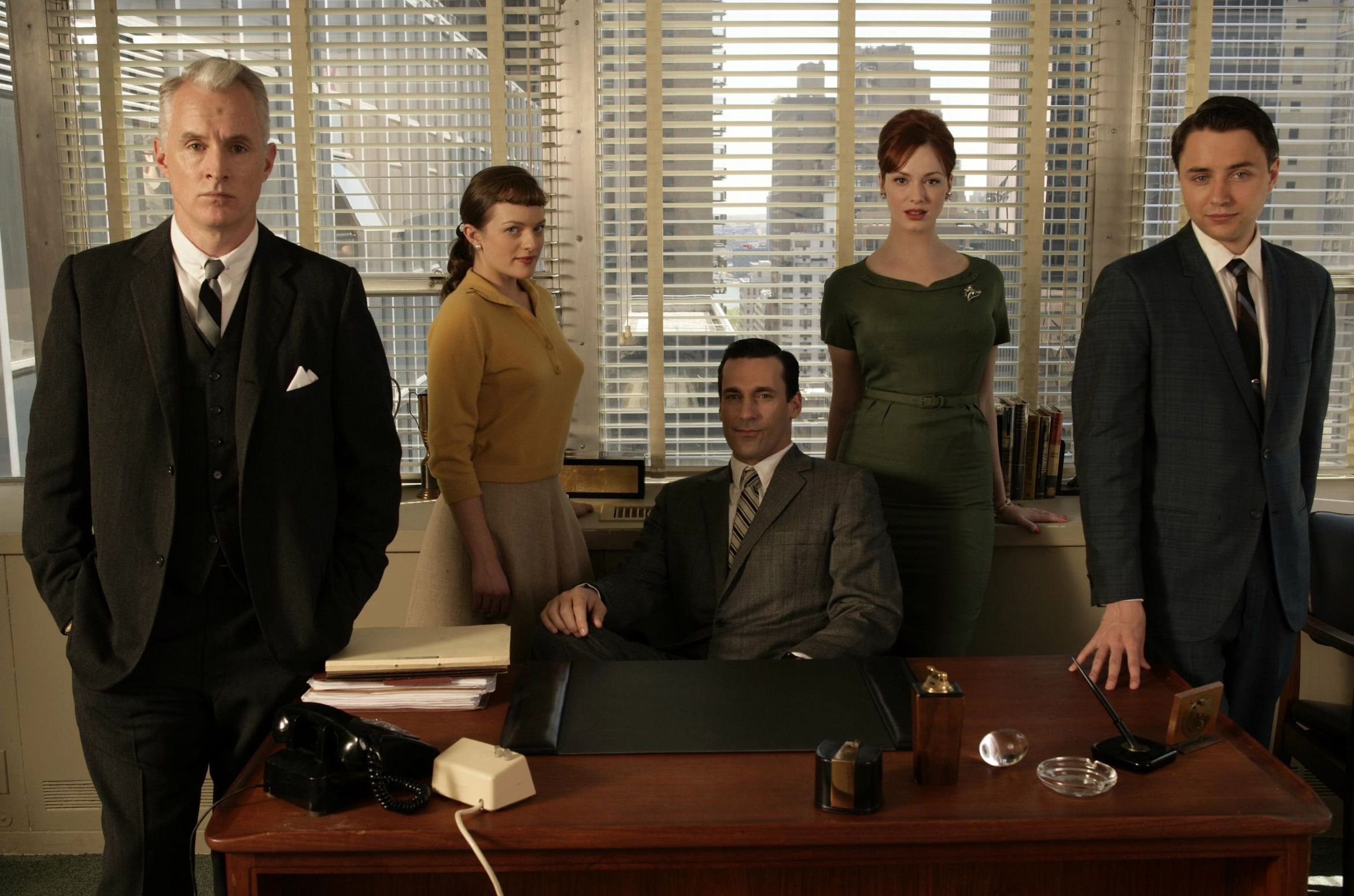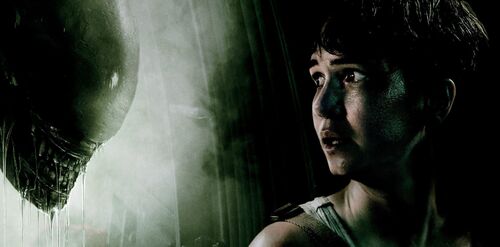
Mad Men Season One (2007) Review
 Who is Donald Draper? That question is at the very heart of Sopranos scribe Matthew Weiner’s now iconic period drama series. The first season of Mad Men, ten years old now, is a near perfect debut that’s full of moments of subtlety, others without it, and scripted with skill and utter ingenuity. There will be some spoilers here as I delve back into one of my favourite shows of all time.
Who is Donald Draper? That question is at the very heart of Sopranos scribe Matthew Weiner’s now iconic period drama series. The first season of Mad Men, ten years old now, is a near perfect debut that’s full of moments of subtlety, others without it, and scripted with skill and utter ingenuity. There will be some spoilers here as I delve back into one of my favourite shows of all time.
The pilot episode is something of an anomaly: It feels as though it would slot more comfortably into the middle of a season of television, a standalone episode with a central plot. But it introduces us to Don, the character that will define Jon Hamm’s acting career, and the final scene of the episode really sets the course for the entire series. We meet a character who is handsome, talented, and in his prime in every way.
Once the credits roll, we learn that he has a wife and two children, and it’s the kind of quiet reveal that the show seems to relish. Mad Men never gets self-indulgent, and is so confident in itself that it allows its characters the time needed to craft a compelling narrative. This is a character-driven drama, reliant almost entirely on the relationships it develops. Fortunately, every single character feels so real, so vividly invented, all slotted into a time period that is lush and riveting.
While the show has managed quite effortlessly to build its fictional narrative around events of the time (for season one, the election pitting Nixon against Kennedy), it also jumps headfirst into themes reflecting the social climate of the time. This makes for some intentionally infuriating sequences, and no one character is ever entirely likable. Sexism is rife, at the fore of so many scenes, always displayed with a critical eye.
Two of the most important characters are Peggy and Joan, played by Elizabeth Moss and Christina Hendricks respectively. Peggy is a young secretary, an instant target for the arrogant young men that flock toward the latest prize, but whose journey is the most extreme from beginning to end. Her presence as a strong female character does not excuse the need for her to feel like a living, breathing person, and her flaws grow clearer the further entrenched she becomes at Sterling Cooper.
Joan is a fascinating woman, seemingly wedged between two time periods. There are clear waves of change coming for society, and yet at this point in time Joan is well aware of the limitations of being a female in a male-dominated world. She knows how to navigate her way through her workplace, and knows what’s required to hold her position. But she maintains her dignity and professionalism, and Hendricks almost single-handedly makes her one of the most captivating members of a flawless ensemble.

Don’s wife Betty (January Jones) takes us away from the show’s most prominent setting, offering a lens into the life of a housewife in 1960. Not unlike Joan, Betty is aware of the limits of her position but she’s completely trapped within the beliefs she grew up on, and often becomes anxious over appearance and age. In season one, she begins to feel dissatisfied with a life in which she waits for an (unbeknown to her) unfaithful husband to come home each night. It’s no clearer than with Betty that Mad Men is blatantly telling us who the victims of the era are.
Running adjacent to these themes of sexism is the inner isolation that our central characters experience. Pete Campbell (Vincent Kartheiser) is a young accountant with a high opinion of his own talents, with deep ambitions he absolutely believes he is worthy of. His concerns surrounding masculinity (his need to be able to support a family, reluctance to accept financial help for him and his wife’s first apartment) often drive his actions, and lead to choices that often lead to poor results. He and Peggy’s final scenes in the first season are actually very similar, as they turn their backs on their respective circumstances and opt for solitude. Both are in very different places and each have a significant affect emotionally and physically on the other.
The most memorable moment that season one provides is in the final episode, when Don is presenting for a new client. With a quiet but melancholy soundtrack backing Don’s monologue, we learn even more about him even as we witness the character at the top of his game. Don ultimately yearns for the concept of family and love, but he’s also, beneath all the bravado, a deeply flawed and weak man. He’s prepared to run from any situation, which is no clearer than in episode twelve when he prompts his latest lover (and a Sterling Cooper client) Rachel Menken (Maggie Siff) to run away with him, prepared to leave his family and job behind at the first sign of trouble.
His unwillingness to face these challenges reaps consequences, as when his long lost brother finds him only to be rejected for the sake of Don keeping his secret safe. Charismatic and enjoyable as he is, thanks to Jon Hamm’s impeccable performance, Don treats his wife poorly most of the time, like a possession more-so than a real person, and with little respect. There’s something sympathetic, too, about Don’s incapability to develop meaningful and lasting relationships, a problem that would be the backbone of the character going forward.
Aside from the doom and gloom, and running concurrently with the emotional complexities of its characters, Mad Men is rife with levity. At times the behaviour of those at Sterling Cooper toes the line between tasteful and obtuse, but it’s always with intent. When Roger Sterling sits on a young woman’s back and rides her like a horse into his office after hours, there’s humour but it’s buried under discomfort. Roger, played to perfection by John Slattery, is the center of the room in every scene he’s in, and yet his personal life provides a stark contrast to the witty, suave man we see at the office. Instead, he’s, not unlike Don but in a more forward manner, a weak man with fierce vices. His affair with Joan is at times sweet, though it at other times shows us a man who believes the things he is saying are truly charming, even as he treats her more as a plaything than a member of their relationship.
Season one of Mad Men is deeply introspective, and spends a great deal of time looking back. We get a number of flashbacks to Don’s life before Don Draper as we know him, and we witness as he opens up a rare few times to very few people. These are the moments that make Mad Men. The show allows emotion to simmer then lets it to leak out when it’s time and not a minute sooner. It’s easy to forget, after a seven-season series length, just how fantastic this debut truly is. It also answers the mystery that is Don’s past, so that it’s time to look forward.
The final shot of the season is poignant, as we see Don imagine a perfect homecoming after a long day at work, only to have reality weigh down on him in the silence. The show acts like the very Carousel Don's pitching in the finale; we’re given snapshots of his past and his present, and because of that we feel like we know him more personally than he will ever know himself.


